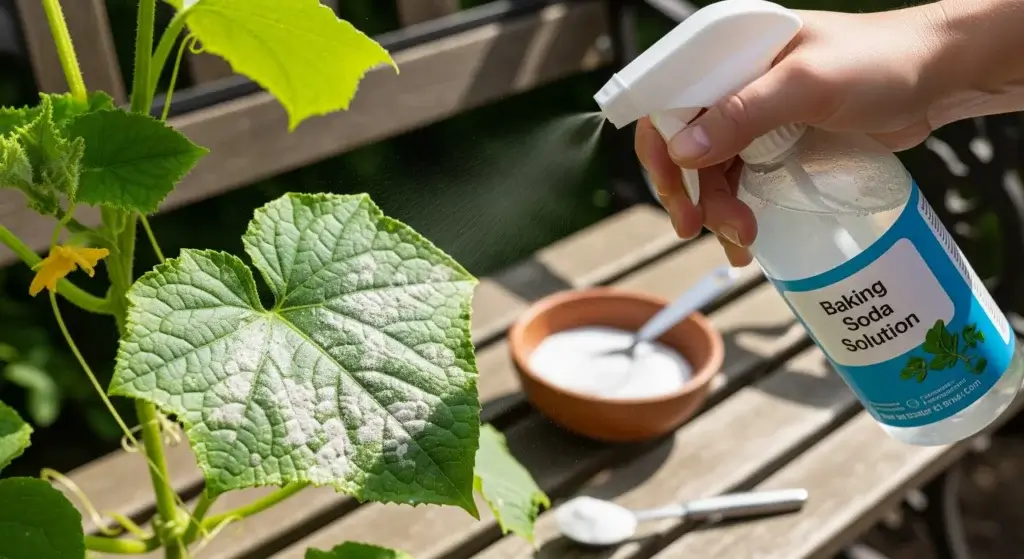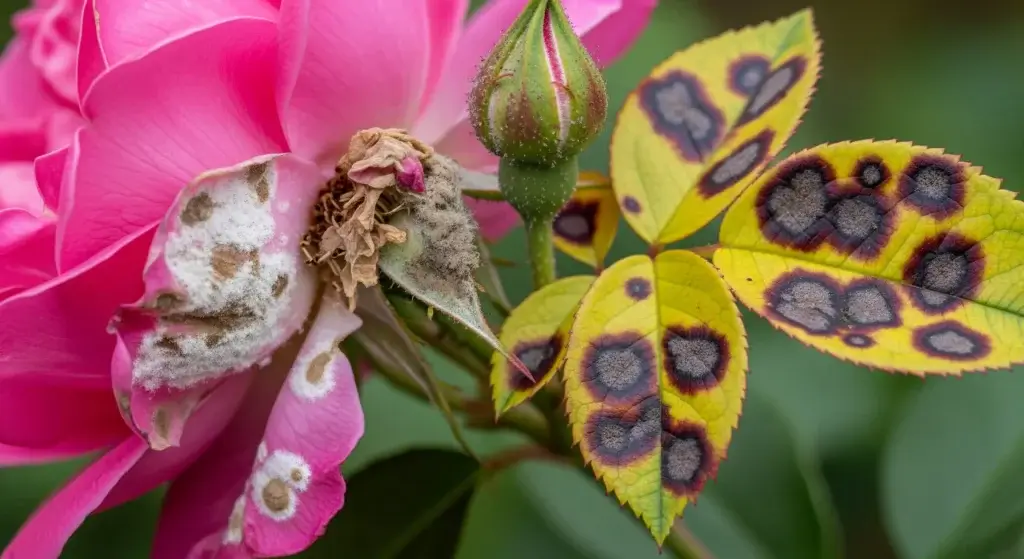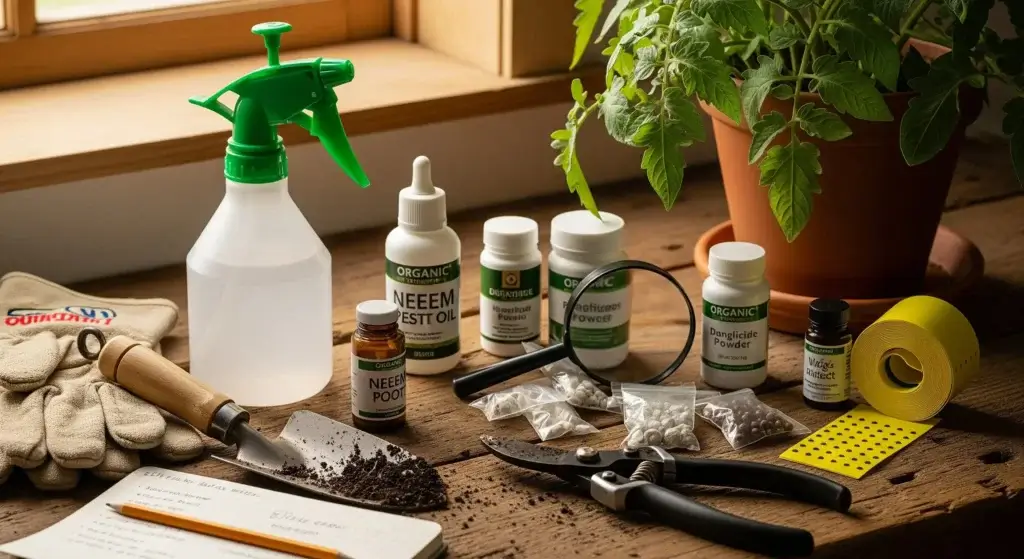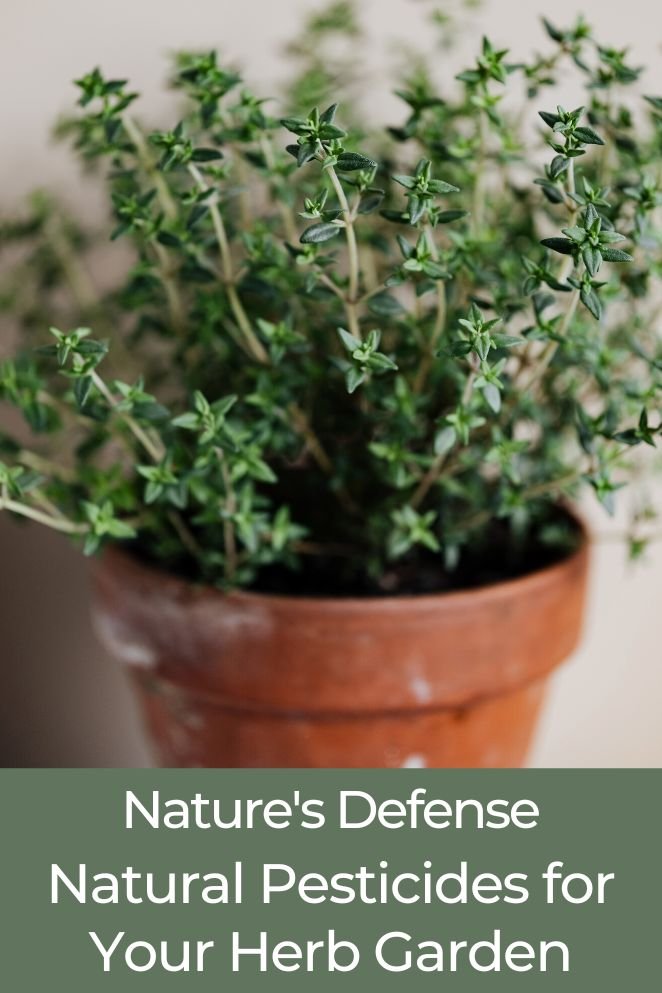
Embarking on the journey of cultivating your own herb garden can be immensely fulfilling, yet the presence of pests poses inevitable challenges.
Instead of opting for harsh chemicals, this comprehensive guide introduces you to the realm of natural pesticides.
Discover effective and eco-friendly remedies to safeguard your precious herbs from common pests.
Join us in exploring a greener and more sustainable approach to herb gardening.
Common Herb Pests
Before we delve into effective solutions, let’s acquaint ourselves with the common culprits that can pose a threat to your herb garden:
Aphids
These minuscule, sap-sucking insects have a knack for rapid multiplication, posing a threat to herb leaves. Identifying and addressing aphid infestations promptly is crucial for maintaining herb health.
- Read also: A Guide to Natural Pesticides for Lettuce
- Read also: A Guide to Natural Pesticides for Tomatoes
Spider mites
Despite their small size, spider mites can inflict significant damage on your herbs, causing discoloration and harm to leaves.
Understanding their impact is vital for implementing targeted solutions to protect your herb garden.
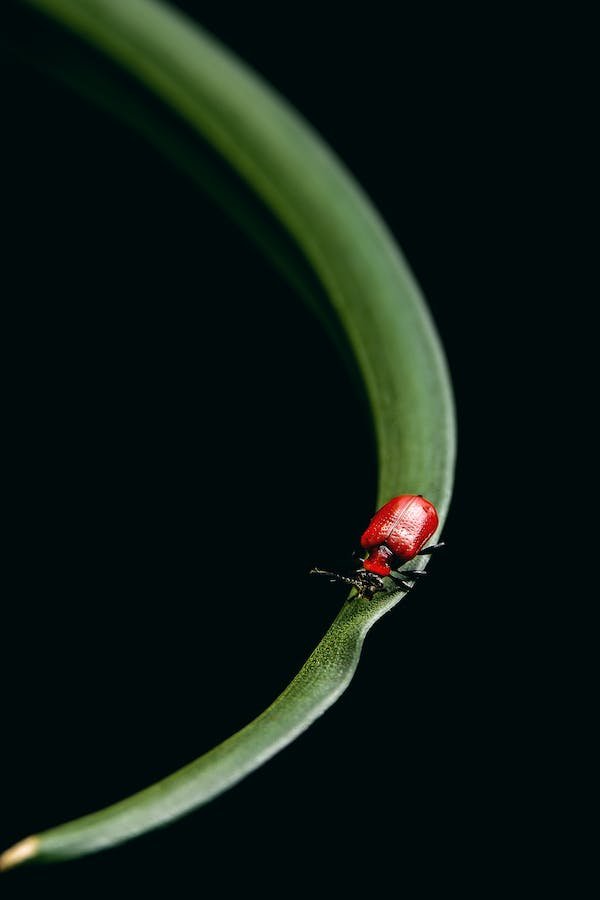
Whiteflies
Weakening herb plants by draining sap and transmitting harmful plant viruses, whiteflies demand attention in herb gardens.
Recognizing the signs of whitefly infestation is essential for effective pest management.
Caterpillars
The larvae of butterflies and moths, and caterpillars may seem innocuous, but their herb-leaf munching habits can result in unsightly damage.
Identifying and addressing caterpillar presence is key to preserving the aesthetics of your herb garden.
Best Homemade Pesticides for Your Herb
Now, let’s explore some effective and eco-friendly homemade pesticides to combat these pesky invaders in your herb garden:
Neem oil
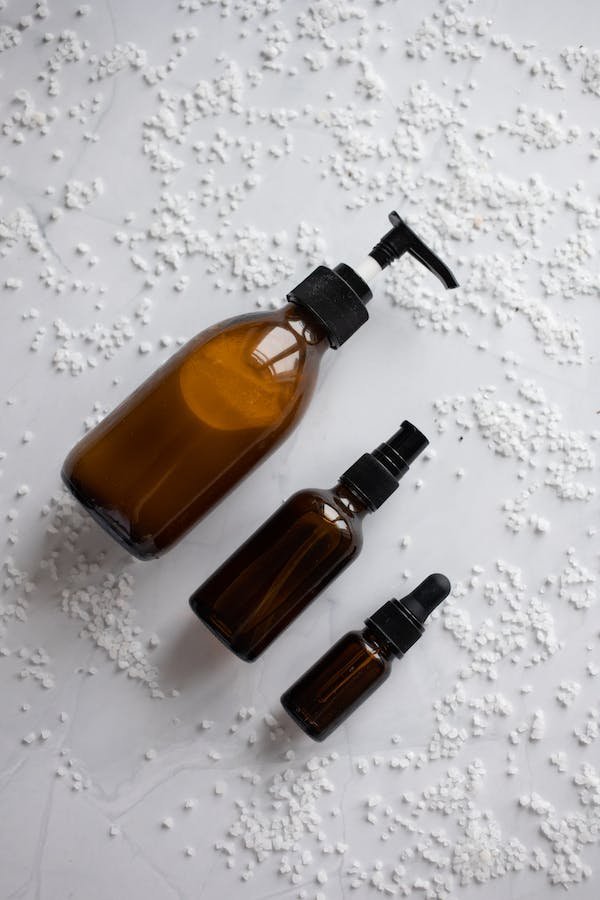
Derived from the neem tree, neem oil is a potent natural pesticide with insecticidal and fungicidal properties. It disrupts the life cycle of pests, including aphids and spider mites.
How to use neem oil
- Mix with water following package instructions.
- Spray the solution on herb plants, ensuring coverage on the undersides of leaves.
- Repeat this application every 7-14 days or as needed for sustained pest control.
Neem oil not only acts as a deterrent but also offers a protective shield for your herbs, promoting a healthier and pest-resistant herb garden.
Embrace the power of this natural solution to keep your herbs thriving.
Garlic Spray
Harness the power of garlic beyond the kitchen—turn it into a formidable insect repellent with garlic spray.
This natural concoction is effective against pests like aphids and caterpillars.
How to make garlic spray
- Crush a few garlic cloves and mix them with water.
- Allow the mixture to sit for a few hours to enhance its potency.
- Strain the solution to remove garlic solids.
- Spray the garlic-infused liquid on your herb plants, ensuring thorough coverage.
- Repeat this application on a weekly basis for consistent pest deterrent.
Garlic spray not only adds a savory touch to your pest control strategy but also acts as a robust shield against herb-damaging invaders.
Embrace this simple yet potent homemade remedy to keep your herb garden flourishing naturally.
Soap spray

A simple yet effective remedy, soap spray is a formidable solution for dealing with soft-bodied pests such as aphids and whiteflies.
Its action disrupts the cell membranes of these pests, leading to their ultimate demise.
How to make soap spray
- Mix mild dish soap with water, creating a soapy solution.
- Spray the soapy mixture on your herb plants, ensuring thorough coverage, especially on the undersides of leaves where pests often reside.
- Repeat the application as necessary, particularly after rainfall or as you observe pest activity.
Soap spray serves as a gentle yet powerful tool in your arsenal against herb pests. Incorporate this homemade solution into your routine to maintain a pest-free and thriving herb garden.
Diatomaceous earth
Harness the power of diatomaceous earth, a fine powder derived from fossilized diatoms, as a mechanical pesticide against insects like ants and beetles.
Its action effectively dehydrates and eliminates these unwanted intruders.
How to use diatomaceous earth
- Sprinkle a thin layer of diatomaceous earth around the base of your herb plants.
- Reapply as necessary, especially after rainfall or when you observe pest activity.
Diatomaceous earth acts as a natural barrier, providing your herb garden with a protective shield against crawling pests.
Integrate this eco-friendly solution into your routine to ensure your herbs thrive in a pest-resistant environment.
Chrysanthemum flower

Harness the natural insect-repelling properties of chrysanthemum flowers, which contain pyrethrins, an effective natural insecticide.
Pyrethrin-based sprays derived from chrysanthemum flowers are potent against a broad spectrum of pests.
How to make chrysanthemum spray
- Steep dried chrysanthemum flowers in hot water to extract their beneficial properties.
- Strain the liquid and allow it to cool.
- Spray the chrysanthemum-infused liquid on your herb plants, ensuring careful avoidance of the flowers themselves.
- Repeat this application as needed for ongoing pest control.
Chrysanthemum flower spray serves as a botanical powerhouse in your pest management strategy, offering a natural and effective shield for your herb garden.
Embrace this floral solution to keep your herbs flourishing and pest-free.
- Read also: Natural Pesticides for Avocado Trees
- Read also: Natural Pesticides for Your Roses
Conclusion
When it comes to shielding your herb garden from pests, there’s a natural alternative to harsh chemicals.
Dive into the world of eco-friendly solutions with this guide, designed not only to protect your herbs but also to nurture a healthier environment.
Embrace experimentation with various green remedies, customizing your approach to tackle the specific challenges posed by garden pests.
Join us on a journey to discover a sustainable and effective method for preserving the vitality of your herb garden.
FAQs
While natural pesticides may require more frequent application, they can be highly effective without the potential harm associated with chemical alternatives.
Yes, these remedies are generally safe for most herbs. However, it’s advisable to test a small portion of the plant before widespread application.
The frequency of application depends on factors like weather conditions and the severity of pest infestation. Regular monitoring will help you determine the optimal schedule.

